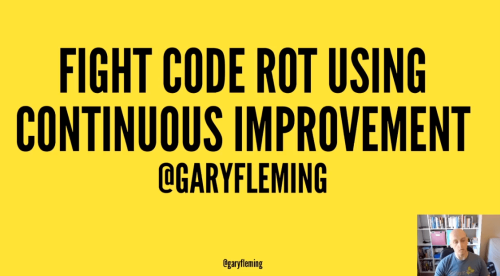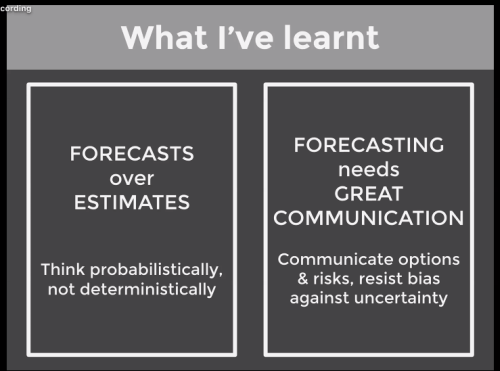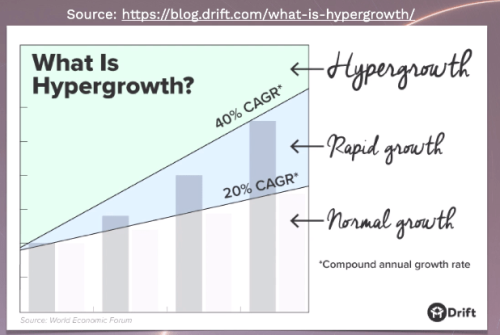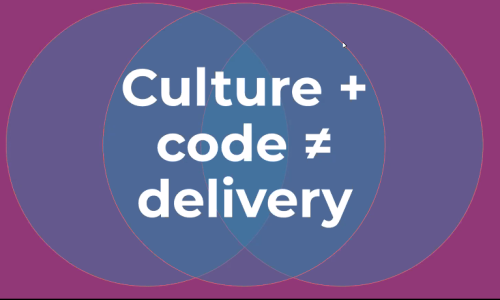Many tech conferences are still going ahead online. Jit Gosai reports on Agile Manchester from a tester’s perspective.
I’ve always found tester representation at agile conferences to be lacking. It’s a bit like it doesn’t have the word test in the titles, so it’s not for me. Personally, I’ve always found a treasure trove of information from talks that are directly or indirectly related to software testing. Remember, testing doesn’t always look like testing: you sometimes need to change the frame with which you look at things to get the best out of them.
| Agile Manchester | |
|
Below are the talks that I attended with a brief summary of the talk and what it could mean for testers. If you want the full unadulterated notes then see my personal notes (follow the link on the original blog).
Fighting Code Rot with Continuous Improvement
by @garyfleming Slides http://bit.ly/fight-code-rot

Summary of the talk
Good talk covering all the basic with keeping your system update and why. Well delivered and really useful for less experienced team members and a good recap for ‘they should know better’ members.
For testers
For testers, understanding what needs to be updated when can help them understand how that change could affect end users. Be proactive what do the release notes say for X, how do we use system Y. Building this knowledge takes time but can be really valuable in the long run. Start small and work your way up. Developers can help you but try and help by having specific questions for them.
Agile metrics for predicting the future
by Mattia Battiston Slides: https://www.slideshare.net/mattiabattiston/agile-metrics-for-predicting-the-future

Summary of the talk
Forecasts will always beat estimates for non-deterministic projects (think all software projects). As they help you understand what could happen with a confidence rating. You’ve probably already got most of this data but knowing your lead times and throughput can help with this and some spreadsheets.
The key thing to remember is you need to talk to your stakeholders and make sure they understand what the numbers mean and how it affects them. Don’t just give them the spreadsheets and expect them to understand.
For testers
If quality means value to someone then value to people working in delivery roles is greater predictability with delivering our software systems. Understanding what these metrics are, how they are used and what affects them will not only enable you to have more productive conversation with delivery but also understand why they are important to that group. This will help you articulate risk better within your teams as you will be able to tailor the message to that specific audience. This will not only help you help them understand risk better but increase your value from just being the person that finds all the issues. This elevates you from being just a tester towards a test analysts.
Crucial conversations in agile teams
How making it safe to talk about almost anything unlocks continuous improvement by Chris Smith. Slides: https://www.slideshare.net/chris_smith1976/crucial-conversations-for-agile-teams-agile-manchester-virtual-may-2020

Summary of the talk
Really interesting talk by @cj_smithy at #agilemanc focusing around the book Crucial Conversations but bringing in ideas from the Chimp paradox, 5 dysfunctions of team, Radical Candor and generative cultures by Ron Westrum. Conversations within agile software teams are incredibly important (remember individuals and interactions over process and tools) so being better skilled at them is a great thing.
For testers
We have conversation with team members all the time. Whether that is to find out information or to inform others about what’s going on, its a core part of our skill set. Getting better at communicating verbally should be part of our personally development as testers. The resources mentioned in this talk would go a long way to help you build up that skill and help keep it sharp.
Leading an agile organisation through hyper growth
By Patrick Kua

Summary of the talk
The company Patrick was a CEO of went through some really fast growth over a very short period. The model he used was simple and acknowledged that it wouldn’t work forever, so they kept iterating and scaling the organisation. Useful to benchmark your company against to see where you are in the growth of your organisation.
For testers
Understanding how a company develops from startup to enterprise is really helpful in seeing what types of problems you’re likely to face. This can help you help your team understand how quality is likely to be affected when scaling and what they can do to mitigate it.
Improve your agile coaching skills with Training from the BACK of the Room
By Sabine Khan

Summary of the talk
Its called back of the room as you’re not using slide decks and presenting but are getting the participants to stand and present instead. Hence coaching from the back of the room.
Really interesting approach to learning and using coaching skills in teaching others. The 6 learning principles are really quite easy to apply and can make almost any session interactive. This combined with the 4C’s gives you a framework to turn any learning topics into something more than just sit and listen.
For testers
Need to help team members understand what exploratory testing is then why not do something interactive instead of just another slide deck. Teach them through doing and the key points might actually stick.
Culture + Code ≠ Delivery
By Vimla Appadoo @thatgirlvim

Summary of the talk
Vim makes a great point in that just delivering through code and a good culture isn’t enough as this misses how that delivery affects users. Especially if the system has biases built in unintentionally. She says we need communications as well. Communication to be able to link together all the parts of the culture of the organisation, systems, processes and people + the code can help us deliver the right things.
For testers
Testers help raise the awareness of quality within systems, but for them to be able to do that affectively they need to take into account the team, the business and users as well. The key skill to be able to do this is communication and helping to link together all the parts to understand the other. This is not to say that testers are the key to culture but on a smaller team scale they can have huge influence over what direction that culture moves in. Do the teams care about how their systems affect users or wait to see what happens?
This article was first published on Jit’s blog on 19 May 2020: https://www.jitgo.uk/agile-manchester-2020-testers-edition/
For further resources for testers, see: https://www.jitgo.uk/blog/
(or Jit, as he’s better known) has over 15 years’ test experience, working with a variety of companies from mobile manufactures to OS builders and app developers. He currently works with the BBC’s Mobile Platforms team. His career started in development, and he moved towards Development in Test to integrate both his passions.











